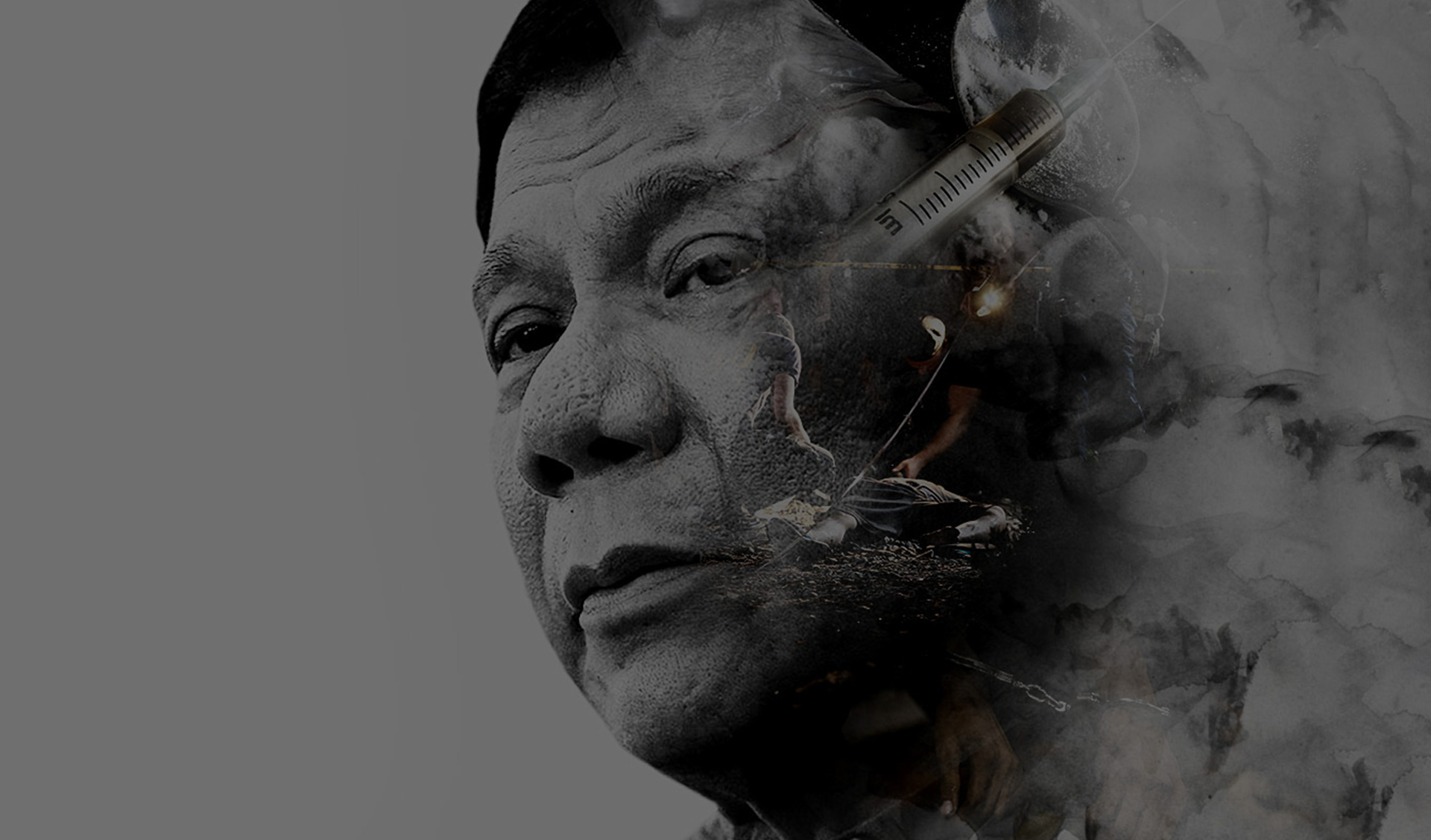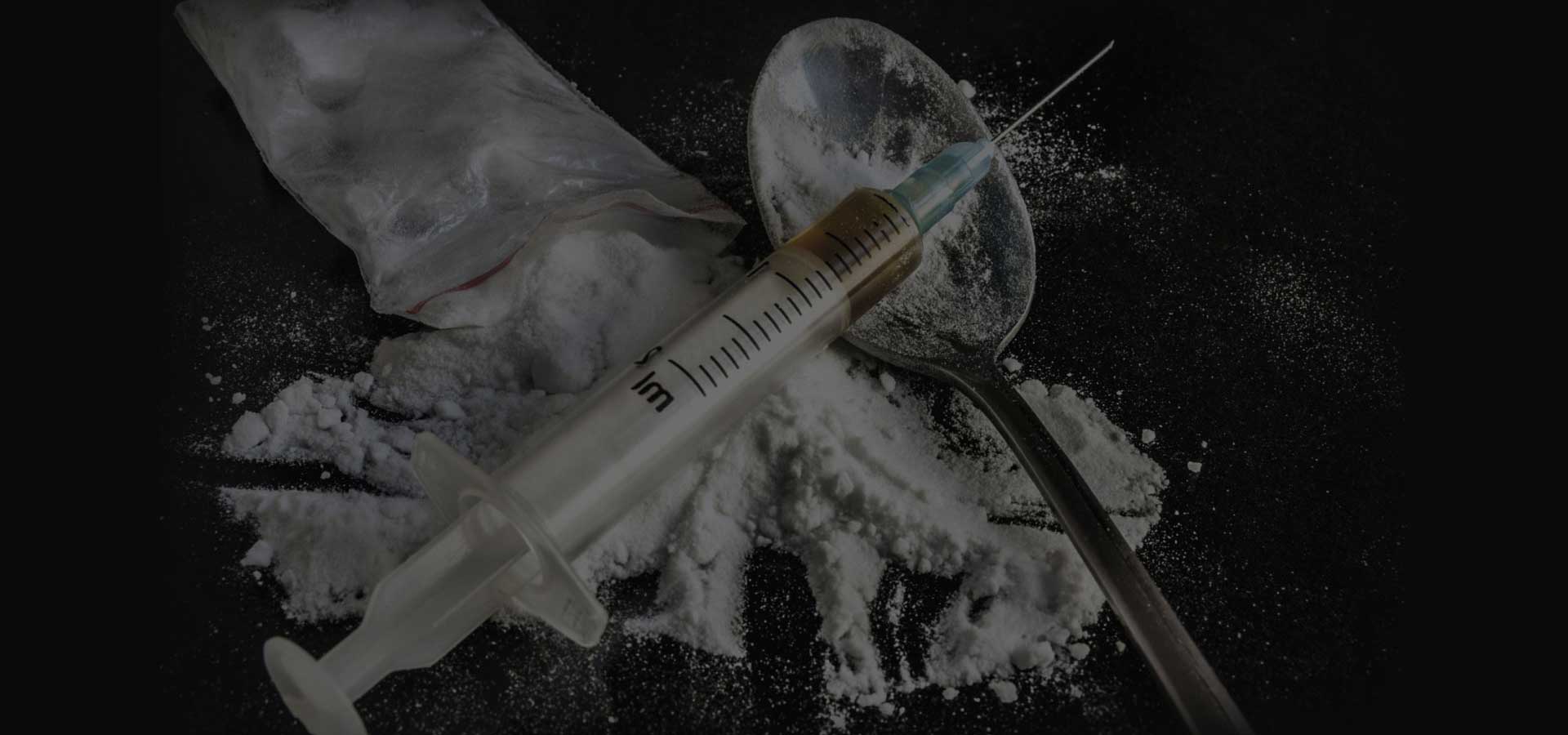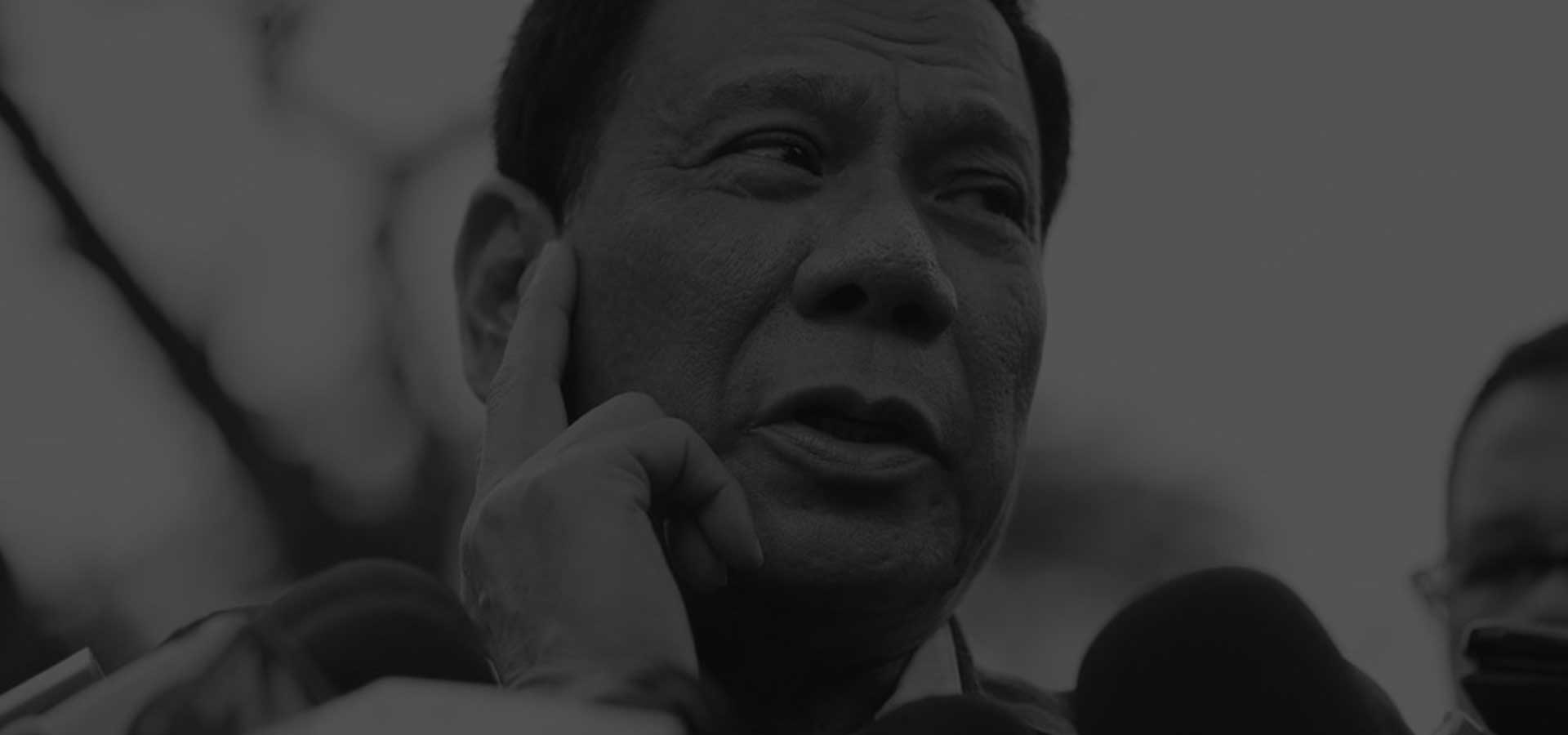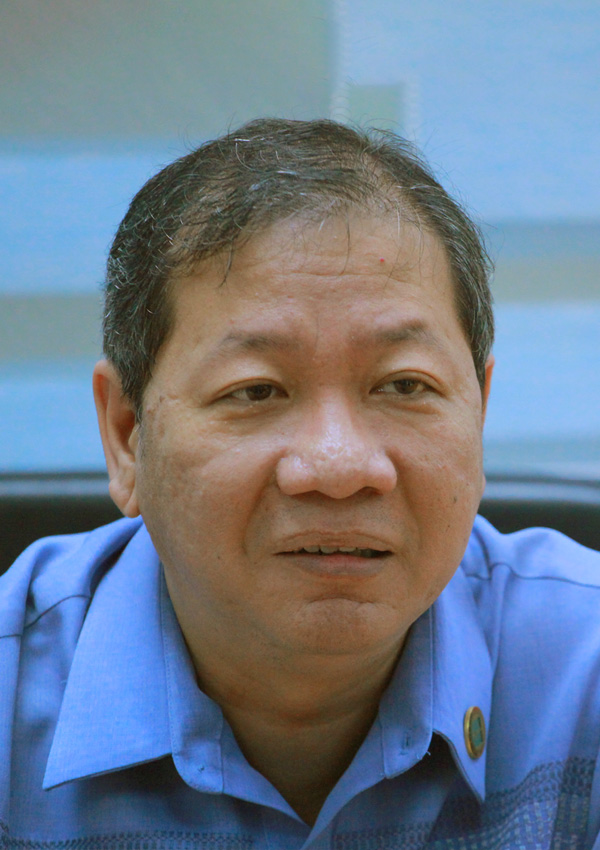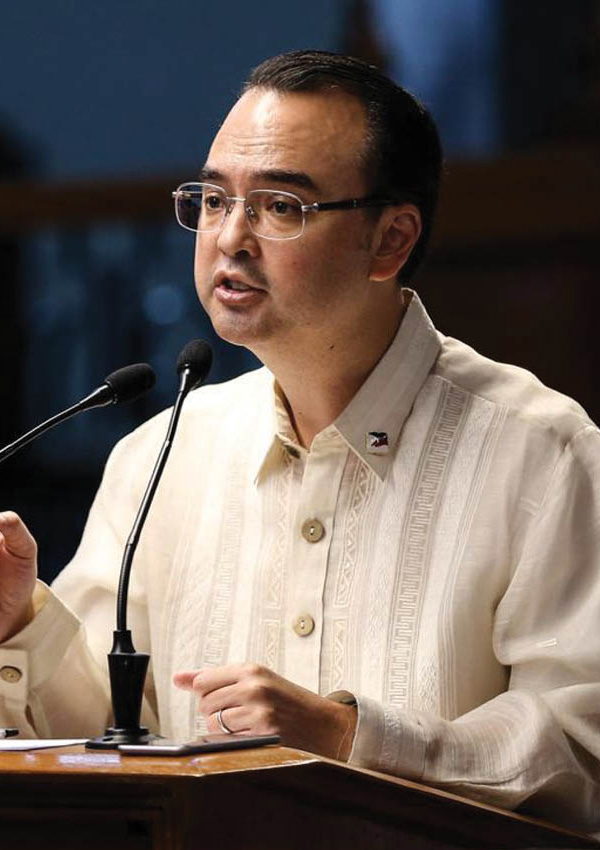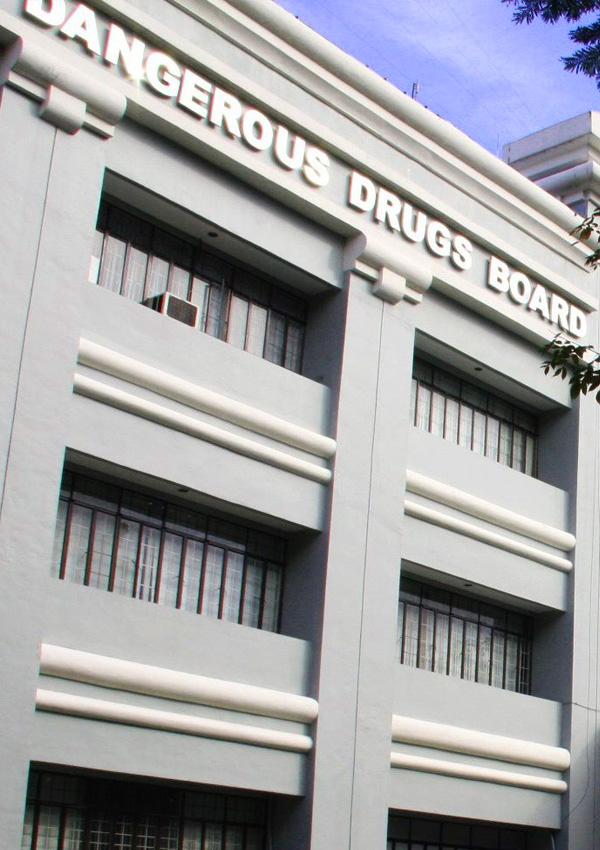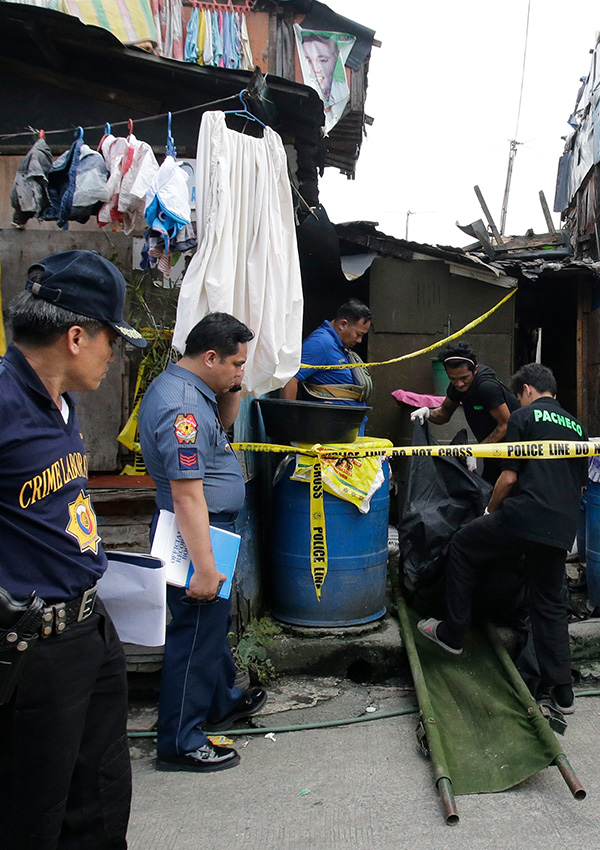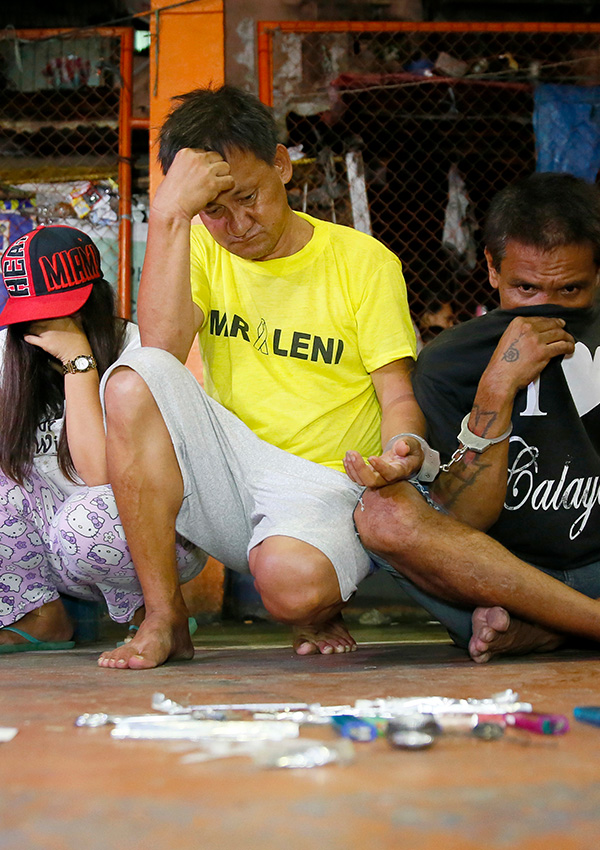T
his piece is a part of a news analysis series on the first 12 months of the Duterte administration.
President Rodrigo Duterte's language was surprising and even shocking, before it became predictable.
He would stand behind a podium and halfheartedly read part of a speech written for him. Then he would proceed with an impromptu about the enormity of the drug problem (there are 4 million drug addicts, he claimed, with little evidence), the threat of drug users to communities (drugs makes them animals, he said, but this is not backed by science) or drug money fueling politics and crime (his political foe, Leila de Lima, sits in jail over drug-related accusations).
He simplistically described narcotics as driving complex problems of corruption and terrorism, popularizing portmanteaus "narco-terrorism," "narco-politicians" and "narco-list," an intel document on officials supposedly linked to the trade.
While not grieving the killing of thousands in his drug war, he lamented the "everyday" death of cops, despite police data recording far fewer casualties on their end.
Philstar.com's research shows that Duterte mentioned illegal drugs in 247 of 304 of his public remarks since he became president in June last year. In his hour-long State of the Nation Address that July alone, he made reference to drugs 23 times.
Over the course of his first 12 months as president, Duterte jabbered about the scourge of drugs unprovoked, repeating the same ideas. He did so while abroad before top officials. And he did the same while addressing outstanding Filipino awardees, typhoon victims or young athletes.
After all, it was the story that got him elected.
Perpetuating myths, changing definitions
Duterte declared that the country is in the grip of a drug crisis, whose urgent solution comes in his campaign promise of a bloody war.
Sociologist Nicole Curato of the University of Canberra argued that populist Duterte's "dystopian narrative" shifted the discussion during the campaign. It muted those of his opponents, particularly Jejomar Binay and Grace Poe's platforms for personal dignity.
For Curato, Duterte's political style makes use of a "language of crisis" drawn from the public's fear of the real and imagined "other," in this case, drug users.
"I argue that part of the reason for this narrative's success has to do with the latent anxiety already existing in the public sphere," Curato wrote in the "Journal of Current Southeast Asian Affairs" earlier this year.
This latent anxiety, Curato wrote, was communities' distress over the commonplace use of illegal drugs. They see the problem—though possibly not as grave on a national scale—up close. But this distress, she said, remained in the background, "mundane but still worrisome, publicized but not politicized." Until Duterte ran and won.
What ensued were police operations which so far killed 5,000 suspects of mostly poor males without benefit of a trial, and thousands of others slain by vigilantes the government denies backing.
Duterte faced a flurry of criticisms from international human rights organizations and international bodies such as the European Union, culminating at the United Nations Universal Periodic Review in Geneva where states urged a halt in the killings and called for thorough investigations.
ALSO READ: Cayetano uses restrictive EJK definition, experts say
Backed by popular support, Duterte and his officials stood their ground and stoked public anxiety, arguing that the UN's defense of the war's drug-crazed targets is a disregard for the human rights of their victims who could be raped or massacred.
Human rights, which by definition should apply to all, ceased to be universal for the administration. Scientifically backed solutions to the drug problem proposed, consequently, failed to catch on.
"While some critics raised issues about human rights and due process, these issues—as far as my respondents were concerned—were secondary to the more pressing dangers they face every day," wrote Curato, who documented political participation of typhoon victims in Tacloban City who supported Duterte.
Unexpected repercussions
There were more costs to Duterte's worrisome but politically successful narrative.
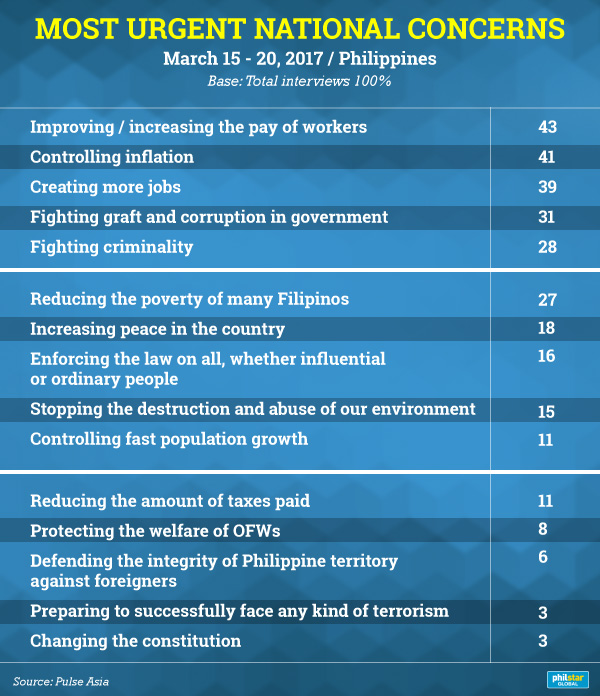
Drugs and crime do not appear to be the most urgent concerns of Filipinos, yet President Duterte's narrative prevails in the political arena. Data from Pulse Asia March 2017 survey.
Excess mandate and a promise of protection fed police corruption and abuse. It was cops who apparently abducted Jee Ick-joo, a Korean businessman, in October last year. He was said to have been killed inside the Philippine National Police's headquarters in Quezon City, a detail acknowledged by the Philippines' top cop Ronald dela Rosa.
In another telling case, a mayor detained for alleged links to the drug trade was shot dead inside his jail cell. The cops who did it claimed that Rolando Espinosa fought back and that killing him was an act of self-defense. National Bureau of Investigation findings, however, pointed to a rubout. Duterte publicly defended the cops. Later, the Department of Justice downgraded the murder charges to homicide.
The bloody drug war also emboldened non-state parties to use Duterte's name in storming into homes or committing robbery.
Efforts to defend Duterte's drug narrative have gone the distance. The firebrand leader fired his appointed drug policy official for daring to cite a scientific study that belies the president's claims on drug prevalence.
To counter the press' findings that data do not support the drug war, Cabinet officials launched the "Real Numbers" campaign. The numbers, in the end, did not seem to be so real.
Besides thousands of killings and tactics to cover up and justify, the country's healthier bilateral ties also took a hit from Duterte's cause.
In September, President Barack Obama called on Duterte to deal with the Philippines' drug woes "the right way," while the European Union called for a stop to extrajudicial killings in the drug war and condemned a bill reviving the death penalty against drug criminals.
Duterte shot back with a "s** of a w****" remark against Obama and a "f*** y**" (flashing the middle finger twice) to the EU. He would go on in October to announce in Beijing that he is separating from the US. He soon after walked back his statements, but later canceled the annual US-Philippines war games.
Political analyst Dindo Manhit, president of think tank ADR Institute, said there wasn't a single turning point in the cooling off of US-Philippines relations over the past year. But Washington's critical view of the drug war did not help.
"The United States' (and other international actors') lack of support for the president's approach to the drug war was likely one important factor. This administration feels strongly about the war on drugs, which was one of its most public initiatives and a personal cause of the president," Manhit told Philstar.com.
By May, the government got the chance to hit back at the EU. It ended development funding from the bloc, claiming that aid from new friends such as China could make up for the loss. This has yet to be seen.
As Duterte enters his second year as president, it is uncertain where the drug narrative will go, and how much of a toll it will have on democratic institutions and principles.
Still, there is more to the Philippines than meets the eye. Forms of quiet resistance sprang up in response to the dominant political theme.
"I think counter-narratives (to the drug story) will thrive in less overt, less spectacular places. For example, various parishes have quietly helped [drug war targets'] families by taking them on, burying the dead, etc. These are quiet ways of helping," sociologist Curato told Philstar.com.
Away from the cacophony, there are possibly more small but humane efforts attending to social wrongs the drug war is supposed to be addressing. These are "not necessarily political but responsive to the injustice the government perpetuates," Curato said.
ALSO READ:
A year of accelerated spending—or so they say
A year of battling through traffic and train queues
A year of hits, misses and postponed promises
A year of consistent inconsistencies
A year of fighting and talking (Part 1)
— Graphics by RP Ocampo
